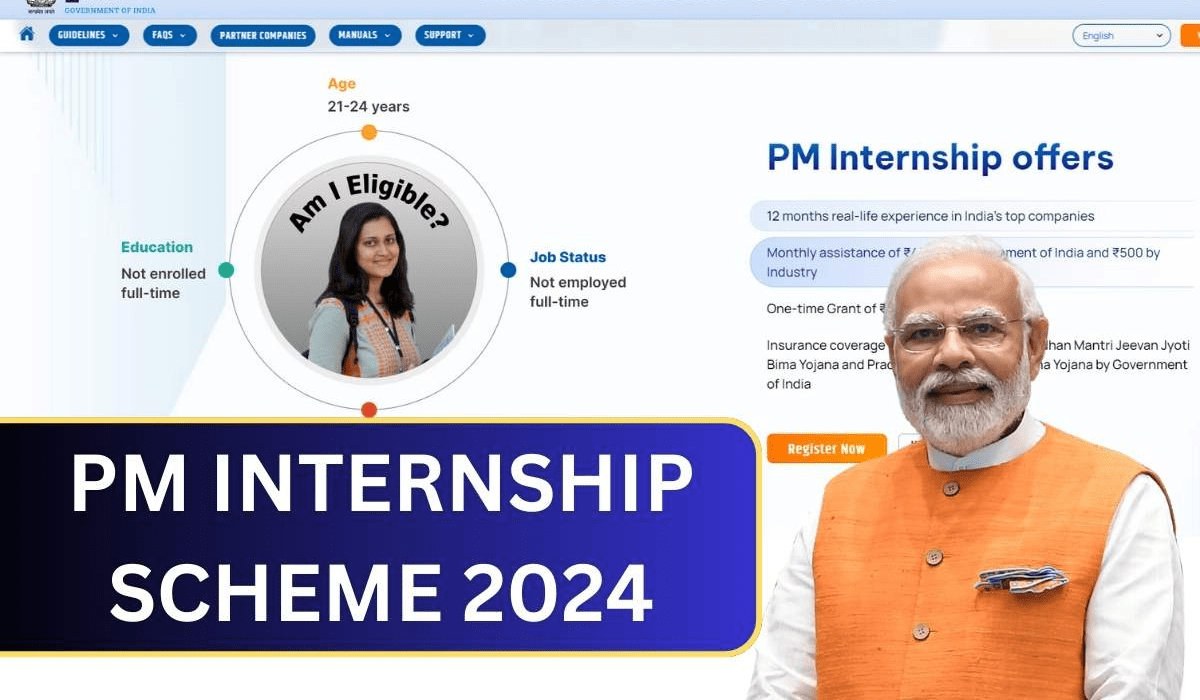The Prime Minister Internship Scheme (PM Internship Scheme) is a government initiative in India designed to provide young graduates and students with practical work experience across various sectors. It aims to bridge the gap between academic learning and real-world application, making participants more job-ready and enhancing their career prospects. Here’s a comprehensive overview of the scheme:
1. What is the PM Internship Scheme?
The PM Internship Scheme is an initiative by the Government of India that offers structured internship opportunities to Indian youth. The program focuses on skill development, industry exposure, and hands-on training. Participants are placed in different government departments, ministries, and associated organizations, providing valuable insights into the functioning of public institutions and national projects.
2. Objectives of the PM Internship Scheme
The main objectives of the PM Internship Scheme include:
- Skill Development: Equip interns with the necessary skills that align with industry and government sector needs.
- Youth Empowerment: Encourage young minds to understand the operations of government institutions and contribute to public welfare initiatives.
- Employment Readiness: Bridge the gap between academic knowledge and practical requirements, making interns more employable.
- Promote Innovation: Inspire young talent to come up with innovative solutions to challenges in public governance.
3. Eligibility Criteria
Eligibility for the PM Internship Scheme varies depending on the type and requirements of the internship. However, general criteria include:
- Education: Candidates must be students in the final year of their undergraduate or postgraduate program or recent graduates.
- Age Limit: Typically, applicants should be between 18 to 25 years old.
- Nationality: Indian citizens are eligible to apply.
- Skills Requirement: Some internships may require specific skill sets related to the area of work, such as research skills, data analysis, or proficiency in particular software or languages.
4. Internship Duration and Structure
- Duration: Internships under the PM Internship Scheme typically last from two to six months. However, specific projects or departments may offer extended opportunities based on their needs.
- Flexible Work: Many internships offer a combination of remote and on-site work, depending on the project and location.
- Mentorship: Interns are often assigned mentors to guide them through tasks, offer feedback, and support their professional growth.
- Performance Evaluation: Interns are usually evaluated at the end of their tenure, with exceptional performers often receiving certificates, stipends, or even employment opportunities in some cases.
5. Application Process
The PM Internship Scheme has a centralized application process. Here’s a general guide:
- Registration: Candidates must first register on the designated government internship portal or website.
- Profile Creation: After registration, applicants need to create their profiles, including educational qualifications, skills, and other relevant details.
- Apply for Internships: Browse available internship opportunities and apply for those that align with your skills and career goals.
- Selection Process: Some internships may require an assessment or interview. Shortlisted candidates will be contacted for further steps.
- Offer Letter: Upon successful selection, interns will receive an offer letter detailing their roles, responsibilities, and internship duration.
6. Benefits of the PM Internship Scheme
- Stipend: Some internships offer a monthly stipend, helping students financially.
- Government Exposure: Interns get direct exposure to government processes and public sector projects.
- Skill Enhancement: Interns gain essential professional skills, including teamwork, problem-solving, and communication.
- Certificate of Completion: Interns receive a certificate at the end of their tenure, valuable for future employment opportunities.
- Networking: Interns build connections with professionals across government sectors, which can lead to future opportunities.
7. Examples of Internship Opportunities
Some key departments and sectors offering internships include:
- Ministry of External Affairs (MEA)
- Ministry of Finance
- NITI Aayog
- Public Sector Enterprises
- Skill Development Councils
These departments offer diverse internship opportunities ranging from policy analysis and data management to project implementation and research.
8. Tips for a Successful PM Internship
- Prepare for the Interview: Research the department or ministry to which you’re applying and understand its primary functions.
- Develop Relevant Skills: Improve relevant skills before starting, such as analytical skills, communication, and digital proficiency.
- Stay Proactive: Take initiative in tasks and offer solutions wherever possible.
- Seek Feedback: Request feedback from your mentor to improve and learn continuously.
9. Future Career Prospects after the PM Internship
Completing the PM Internship can open doors to various career opportunities, especially within the public sector. The experience also strengthens candidates’ profiles for private sector roles, as they will have a proven record of practical work experience and exposure to real-world problem-solving.
10. Conclusion
The PM Internship Scheme is an excellent opportunity for students and recent graduates to gain valuable work experience, develop skills, and contribute to national projects. Through this scheme, young Indians can experience the workings of the government, enhance their job-readiness, and be better prepared for their future careers.







